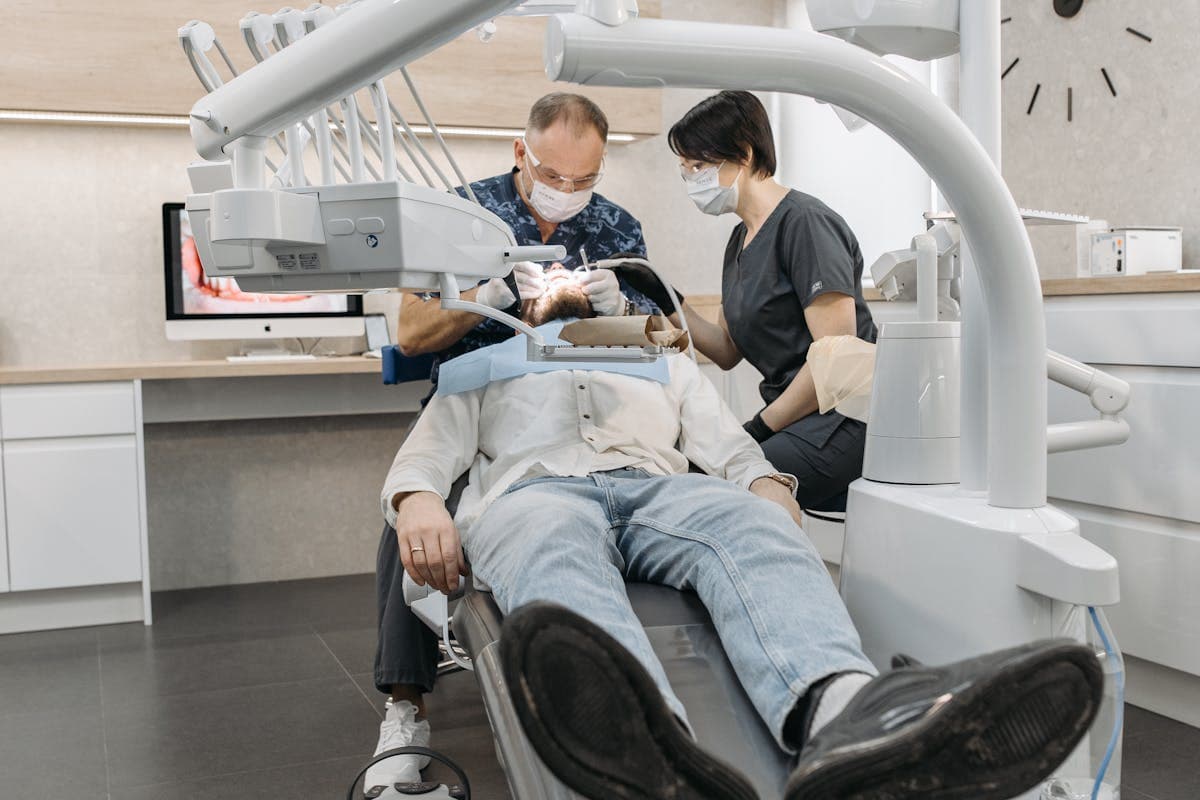The interconnection between temporomandibular joint disorders, commonly known as TMJ, and depression is a burgeoning field of study in medical and psychological research. The chronic pain associated with TMJ often leads to significant emotional distress, including symptoms of depression. This raises intriguing questions about the multidimensional nature of chronic pain disorders and the importance of addressing the psychological implications alongside the physical symptoms. As we explore this complex relationship further, it underscores the importance of a holistic approach to patient care and treatment.
Understanding TMJ Disorders
While it may seem obscure to many, Temporomandibular Joint (TMJ) Disorders are, in fact, a prevalent issue that affects a significant portion of the population. These disorders can cause severe discomfort and pain, mainly centered around the jaw and ear, and can even disrupt routine activities such as talking or eating. The nature of TMJ disorders necessitates a compassionate yet analytical approach towards treatment. The focus of TMJ treatments is primarily on pain management, utilizing a range of methods from medication and physical therapy to surgical interventions in more extreme cases. It is essential to remember, however, that every patient’s experience with TMJ disorders is unique, requiring a tailored treatment plan that prioritizes patient comfort and pain reduction.
Linking TMJ and Depression
The experience of living with TMJ disorders can be challenging not only due to the physical discomfort but also because of the potential psychological effects. Recent studies highlight a significant link between TMJ disorders and depression, largely due to persistent pain and decreased quality of life. This association underscores the importance of thorough tmj therapy, which should address both physical symptoms and emotional well-being. A successful treatment plan not only alleviates physical pain but also bolsters emotional resilience, helping patients cope with the psychological strain of chronic illness. Consequently, treating TMJ disorders is not simply about managing physical discomfort, but also about addressing the intertwined mental health aspects, thereby providing a holistic approach to patient care.
Symptoms of TMJ-Related Depression
Given the complex interplay between physical health and mental well-being, it is not surprising that individuals suffering from TMJ disorders often exhibit symptoms of depression. This is likely due to the persistent TMJ pain, which can lead to emotional distress. These symptoms can manifest themselves in a variety of ways, from persistent feelings of sadness and hopelessness to a loss of interest in activities they once enjoyed. Furthermore, they may also experience difficulty sleeping, changes in appetite, and a decreased ability to concentrate. It is essential to recognize that these symptoms can exacerbate the physical discomfort associated with TMJ disorders, creating a cyclical pattern of pain and depression. Consequently, addressing both mental and physical health is vital in managing TMJ-related depression.
Biological Factors Interconnecting TMJ and Depression
To fully understand the correlation between TMJ disorders and depression, it is crucial to explore the biological factors interconnecting these two conditions. Central to this interconnection is neurotransmitter imbalance, particularly the dysregulation of serotonin, often seen in both conditions. Serotonin, an important neurotransmitter, regulates mood, sleep, and pain. When imbalanced, it can trigger depressive symptoms and intensify TMJ-associated pain. Additionally, the body’s stress response plays a significant role in this complex relationship. Chronic stress, often associated with TMJ disorders, causes hormonal changes that can exacerbate depressive symptoms. Furthermore, it can heighten pain perception, further aggravating TMJ disorders. Consequently, the interplay of neurotransmitter imbalance and altered stress response forms a biological bridge between TMJ disorders and depression.
Psychological Impact of Chronic TMJ Pain
Living with chronic TMJ disorders can exert a significant psychological toll on affected individuals. Chronic pain, inherent to TMJ, can lead to emotional strain and decreased emotional resilience. The continuous discomfort disrupts daily routines, impacting work performance and personal relationships, consequently exacerbating feelings of anxiety and depression. The uncertainty of pain episodes can also induce a state of constant worry, which further fuels the cycle of anxiety and depression. The emotional distress associated with TMJ not only intensifies the perception of pain, but also affects the individuals’ ability to cope with it. As a result, addressing the psychological impact of TMJ is as essential as treating the physical symptoms to guarantee thorough patient care.

Strategies for Managing TMJ and Depression
Maneuvering through the complex challenges of TMJ and depression requires a deep understanding of their interconnected nature. By identifying effective coping mechanisms, we can enhance our ability to manage these conditions and improve overall well-being. It is imperative, consequently, to critically examine the TMJ-depression connection and explore the best approaches to deal with them in a holistic manner.
Understanding TMJ-Depression Connection
Though it may seem surprising, there is a significant connection between temporomandibular joint disorder (TMJ) and depression. This connection may stem from the chronic pain and discomfort that TMJ triggers, subsequently causing emotional distress and leading to depression. Emotional resilience is an important factor in managing both conditions. It enables patients to handle the pain and maintain their mental health. Yet, without diagnosing and treating the root cause, the symptoms might continue or even worsen. As a result, it’s essential for healthcare professionals to recognize this correlation and address both conditions concurrently. Understanding the TMJ-depression connection can lead to more effective treatment strategies, better patient outcomes, and improved quality of life.
Effective Coping Mechanisms
Managing both TMJ and depression effectively requires an extensive approach that includes medical treatment, self-care practices, and mental health support. Incorporating mindfulness techniques can lead to significant improvements, as they help in reducing the emotional stress that often exacerbates TMJ pain. Such techniques can include meditation, deep breathing, and guided imagery, all of which encourage a focus on the present moment, thereby relieving tension and promoting relaxation. Simultaneously, participating in support groups can provide a platform for sharing experiences and coping strategies, providing invaluable emotional assistance. By merging these strategies with professional medical aid, patients can manage their conditions more effectively, fostering an environment for healthier mental and physical states.
Medical Treatments for TMJ and Depression
While it might seem challenging to address two conditions concurrently, medical treatments for both TMJ and depression have proven to be highly effective. Acupuncture therapy, as a non-pharmacological intervention, has been recognized for its potential to alleviate TMJ pain, easing the jaw muscle tension linked to this condition. Furthermore, medication options provide a parallel pathway for relief. Antidepressants not only target depressive symptoms but can also help manage chronic pain, making them a dual-purpose treatment. Anti-inflammatory drugs, muscle relaxants, or pain relievers might also be prescribed to directly address TMJ discomfort. It is crucial to remember that each patient is unique, and treatment plans should be individually tailored, considering both physical and mental health aspects.
Lifestyle Changes to Alleviate TMJ and Depression
Beyond the scope of medical treatments, a holistic approach to alleviating TMJ and depression often necessitates integrating several lifestyle modifications. Dietary adjustments can play a significant role in managing these concurrent conditions. Consumption of anti-inflammatory foods, like omega-3 fatty acids, can potentially minimize TMJ inflammation, while a diet rich in tryptophan, a serotonin precursor, might improve mood regulation. In addition, incorporating relaxation techniques such as mindfulness meditation, yoga, or deep-breathing exercises can help reduce stress, a key exacerbator of both TMJ and depression. These techniques foster a mindful awareness of the body, potentially reducing clenching behaviours that aggravate TMJ pain. It’s essential to remember that each individual’s journey is unique; what works for one may not work for another.
Frequently Asked Questions
What Is the Prevalence Rate of Tmj-Related Depression?
The prevalence rate of depression related to temporomandibular joint disorders (TMJ) is not definitively established. However, TMJ statistics indicate a significant depression correlation, suggesting the need for extensive mental and physical healthcare in managing TMJ cases.
Does Gender Affect the Risk of Developing Tmj-Related Depression?
Research suggests gender differences do impact the risk of TMJ-related depression, with females more susceptible due to certain psychological factors. However, more thorough studies are needed for a definitive conclusion.
Are There Any Genetic Factors That Increase the Risk of TMJ and Depression?
Research suggests that genetic predisposition and familial patterns may increase the susceptibility to both TMJ disorders and depression, although more studies are needed to confirm and understand the complexities of this relationship.
What Are Some Alternative Therapies for Managing TMJ and Depression?
Alternative therapies such as acupuncture can potentially offer benefits by alleviating pain and tension, while mindfulness techniques can aid in managing stress, thereby possibly improving symptoms of both TMJ disorder and depression.
Can Tmj-Related Depression Result in Other Mental Health Problems?
Yes, TMJ symptoms can exacerbate existing mental health conditions. Prolonged pain and discomfort may lead to anxiety or exacerbate depression, potentially resulting in a more complex mental health landscape requiring thorough treatment.


